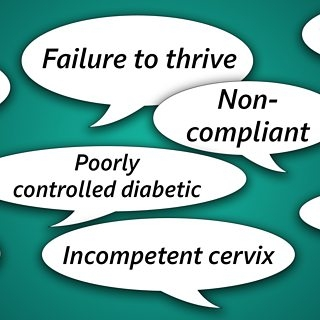Just listened to the first part of the program which concentrates on medical language.
They mention several of the example we often see here. And then positively request emails letting them know of other examples - and what language we (as patients) would prefer to be used.
I really hope you will consider contacting the program (they asked for that).
Obvious examples include "non-compliant" and even "presenting complaint".
I do not know about access outside the UK.
Inside Health
Medical language, chemo brain & heatwaves
Released On:12 Jul 2022
Available for over a year
Does medicine have a language problem? We speak to Rachel who was made to feel like a 'naughty schoolgirl' by the terminology used around the birth of her child. We’ll find out how deep-seated blaming and belittling language in healthcare is, and why. We get sticky and sweaty discussing the dangers of heatwaves to the human body. And we take the confusion out of 'chemo brain' or cancer-related cognitive impairment, and explore why we rarely talk about it and how this is now changing. Presenter: James Gallagher Producer: Beth Eastwood
bbc.co.uk/sounds/play/m00193pp
Contact details:

